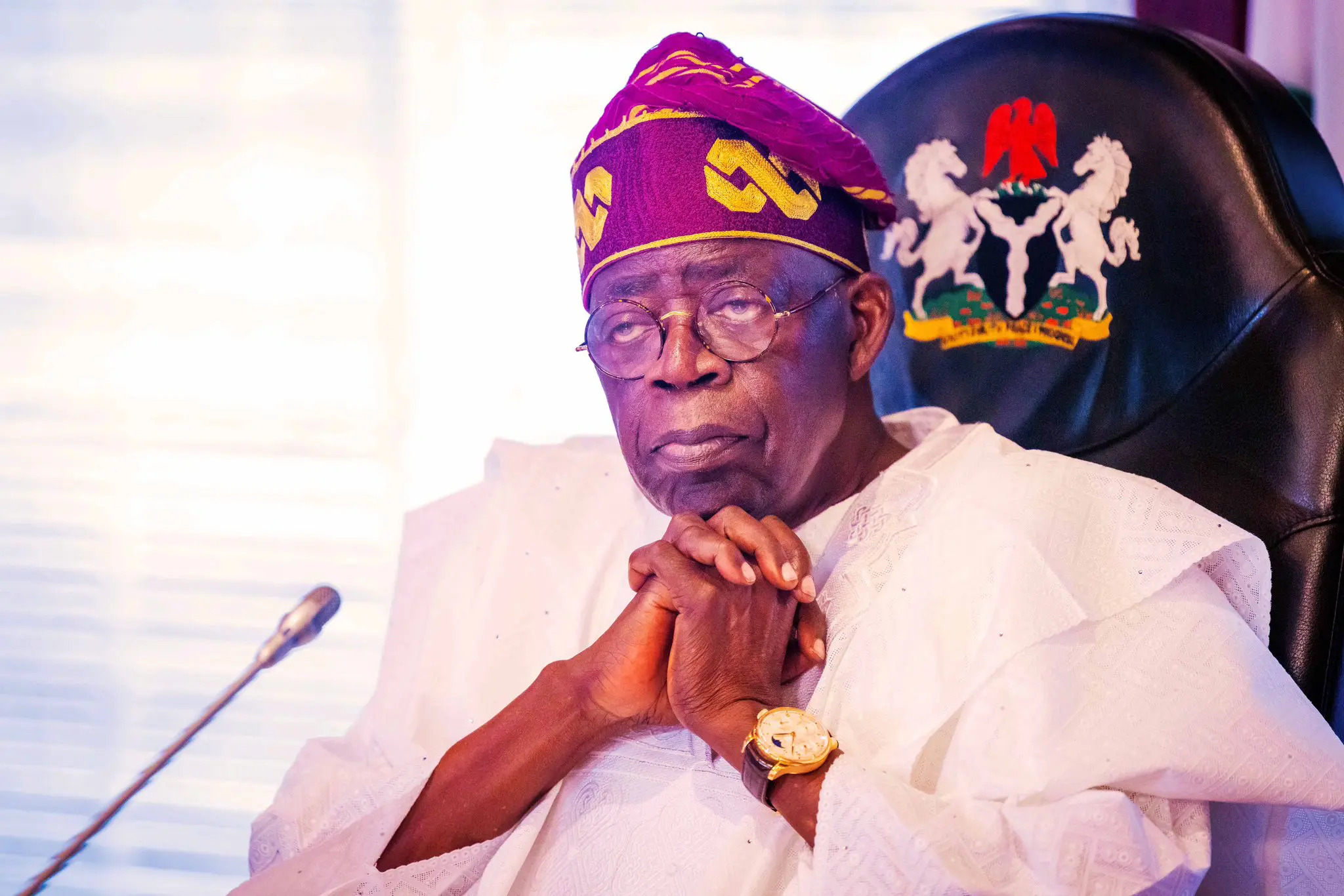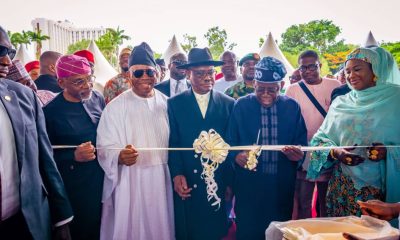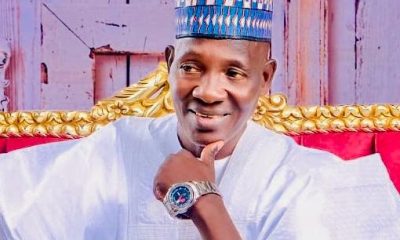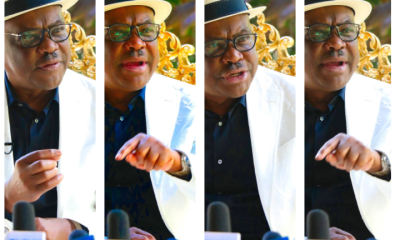OPINION
Why Tinubu Must Heed PDP Governors’ Advice Against Palliative-Driven Solutions To Ease Hardship

BY ISAAC ASABOR *
There is no denying that palliatives, by definition, are intended to provide temporary relief during a crisis. While they may provide some relief from immediate hardships, they do little to address the underlying causes of the country’s economic problems. Given the foregoing, it is not unreasonable to argue that Nigeria’s current economic challenges, which range from skyrocketing inflation to widespread unemployment, cannot be addressed through token gestures of assistance. Instead, these challenges necessitate a comprehensive and long-term approach that addresses the underlying systemic issues directly.
The disadvantages of handing out palliatives to the people may have been the reason why the People’s Democratic Party Governors’ Forum on Friday urged the federal government to subsidise agriculture, health, and education rather than distributing palliatives.
In a Communiqué issued after the meeting in Jalingo, Bauchi State Governor Bala Muhammed, who also serves as the forum’s chairman, described the federal government’s distribution of palliatives as an insult to Nigerians’ sensitivity.
The governors, who urged President Bola Tinubu to reconsider the distribution of palliatives, contended that these temporary measures are unsustainable and, in reality, amount to nothing more than crumbs for the masses. This viewpoint is not only valid but also required for guiding the country to a more stable and prosperous future.
Indeed, it is not an exaggeration to say that the experiences of other African countries highlight the limitations of palliative care as a solution to economic hardships. In Kenya, for example, the government has repeatedly relied on palliative measures during times of crisis, only to discover that they provide little more than temporary relief. The underlying issues, such as high unemployment, poor infrastructure, and economic inequality, have persisted, resulting in ongoing challenges for the Kenyan people. This emphasises the importance of long-term strategies that address the underlying causes of economic difficulties rather than relying solely on short-term fixes.
It should be noted in this context that the PDP governors correctly pointed out that palliatives, no matter how well-intended, create dependency and do not empower citizens to rise above their circumstances. The emphasis should not be on providing temporary relief, but rather on implementing policies and programs that promote long-term economic growth, job creation, and social stability.
Given the outcome of the PDP Governors’ meeting, it is reasonable to conclude that to truly uplift the nation, the Tinubu administration must prioritise initiatives that go beyond immediate handouts. Policies aimed at revitalising key sectors such as agriculture, manufacturing, and technology will generate employment and boost economic activity. Furthermore, investing in education and skill development will provide young people with the tools they need to make meaningful contributions to the economy.
Another critical area that requires attention is infrastructure development. Improving transportation networks, power supply, and access to clean water will not only improve Nigerians’ quality of life but will also attract investment and accelerate economic growth. The government must also work to improve the ease of doing business in Nigeria by reducing bureaucratic red tape and creating an environment that encourages entrepreneurship and innovation.
Furthermore, combating corruption and ensuring that public funds are used effectively and transparently will help to rebuild trust in government institutions and ensure that resources are allocated where they are most needed.
While palliatives provide temporary relief, they are not a long-term solution to Nigeria’s economic problems. As previously stated, the experience of other African countries, such as Kenya, demonstrates that such measures do little to address long-term problems. The Tinubu administration must follow the advice of the PDP governors and shift its focus to implementing policies and programs that will result in long-term change. By addressing the root causes of the country’s problems, the government can create a stronger, more resilient economy that benefits all Nigerians, not just now, but for future generations.
The leadership of the ruling party, the All Progressives Congress (APC), with specific mention of Mr. President in this context, should listen to the opposition’s voice.
The reason for the preceding viewpoint is not farfetched; in a thriving democracy, opposition parties’ roles are not only to challenge the ruling party, but also to provide constructive criticism, offer alternative perspectives, and propose policies that could benefit the nation. Frequently, these suggestions are dismissed outright as politically motivated or baseless. However, history has shown that ignoring the opposition’s voice can be harmful to a democracy’s health and citizens’ well-being. It pays for the ruling party to always listen to suggestions made by opposition parties, because not all advice or criticism is wrong.
Without a doubt, opposition parties are a necessary component of any democratic system. They act as a check on the ruling party, ensuring that decisions are made for the benefit of the people. When opposition parties criticise policies or propose alternatives, they do so not just for political gain, but also to provide different perspectives that may lead to more balanced governance. A vibrant democracy is built on a diversity of opinions, which prevents power concentration and promotes accountability.
There have been numerous instances around the world in which ruling parties ignored opposition parties’ warnings and suggestions, only to later regret it. In Nigeria, for example, the ruling All Progressives Congress (APC) has been accused of dismissing the opposition’s warnings, particularly on economic policy. The opposition’s criticism of the government’s handling of issues such as inflation, unemployment, and the devaluation of the naira has frequently been dismissed as mere political rhetoric. Nonetheless, these issues have persisted, implying that a more inclusive approach to governance may have produced better outcomes.
Similarly, in the United States, the Democratic Party’s opposition to certain Trump administration policies, such as the COVID-19 pandemic response, was initially dismissed. However, the eventual results showed that some of the opposition’s concerns were valid, and a more collaborative approach could have helped to alleviate the situation.
Criticism, when constructive, should not be feared or dismissed. Instead, it should be viewed as an opportunity for development and improvement. President Tinubu should remember that opposition parties represent a sizable portion of the population. Their perspectives and suggestions reflect the citizens’ concerns and aspirations. By taking into account opposing viewpoints, the ruling party can develop more inclusive policies that meet the needs of a wider range of society.
Furthermore, accepting opposing viewpoints can promote a sense of national unity. When the ruling party demonstrates that it is willing to listen to and act on good ideas, regardless of origin, it fosters trust among voters. It demonstrates that the government is truly working for the people, not just those who elected them to power.
From the aforementioned perspective, governance should not be about winning arguments, but about making the best decisions for the country. As a result, ruling parties must adopt an open-minded attitude towards suggestions, even from those on opposite sides of the political spectrum. This approach will not only improve governance quality but will also help the nation’s stability and progress.
While it is understandable for the ruling party to be sceptical of the opposition’s motivations, it is critical to recognise that not all opposition criticisms or suggestions are incorrect. By listening to and incorporating valid points from the opposition, ruling parties can avoid the trap of echo chambers and ensure that their policies are strong, inclusive, and in the best interests of the country. After all, in a true democracy, the best ideas should always prevail, regardless of where they come from.
-
CRIME3 years ago
PSC Dismisses DCP Abba Kyari, To Be Prosecuted Over Alleged $1.1m Fraud
-
FEATURED3 years ago
2022 Will Brighten Possibility Of Osinbajo Presidency, Says TPP
-
FEATURED2 years ago
Buhari’s Ministers, CEOs Should Be Held Accountable Along With Emefiele, Says Timi Frank
-
BUSINESS & ECONOMY2 years ago
Oyedemi Reigns As 2023’s Real Estate Humanitarian Of The Year
-
SPORTS1 year ago
BREAKING: Jürgen Klopp Quits Liverpool As Manager At End Of Season
-
SPORTS2 years ago
Could Liverpool Afford Kylian Mbappe For €200 million? Wages, Transfer Fee
-
ENTERTAINMENT2 years ago
Veteran Nigerian Musician, Basil Akalonu Dies At 72
-
FEATURED2 years ago
Tribunal Judgement: Peter Obi Warns Of Vanishing Electoral Jurisprudence, Heads To Supreme Court
-
BUSINESS & ECONOMY2 years ago
Oyedemi Bags ‘Next Bulls Award’ As BusinessDay Celebrates Top 25 CEOs/ Business Leaders
-
FEATURED3 years ago
2023 Presidency: South East PDP Aspirants Unite, Demand Party Ticket For Zone



































